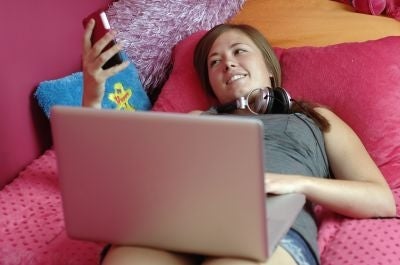Device battery life could be doubled if your WiFi took short naps

The batteries on smartphones, laptops and tablets could last up to twice as long as they currently do if slight changes were made to the WiFi technology they use.
Research conducted by a Duke University graduate student has found that the WiFi technology used to connect to the internet and download information such as pictures, music and video "can be a major drain of battery."
The WiFi drain on the battery is even more pronounced when multiple devices are competing to download information in close vicinity to each other.
One solution, proposed computer science graduate Justin Manweiler, is to allow "mobile devices to sleep while a neighboring device is downloading information. This not only saves energy for the sleeping device, but also for competing devices as well."
The system, called SleepWell, could relieve WiFi congestion by staggering device activity cycles so they don’t overlap with others, "ultimately resulting in promising energy gains with negligible loss of performance," said Manweiler.
"Energy is certainly a key problem for the future of mobile devices, such as iPhones, iPads and Android smartphones," stated Romit Roy Choudhury, assistant professor electrical and computer engineering at Due’s Pratt School of Engineering. "The SleepWell system can certainly be an important upgrade to WiFi technology, especially in the light of increasing WiFi density."
SleepWell was recently presented at the ninth Association for Computing Machinery's International Conference on Mobile Systems, Applications and Services ( MobiSys), in Washington, DC.
Join our commenting forum
Join thought-provoking conversations, follow other Independent readers and see their replies
Comments
Bookmark popover
Removed from bookmarks